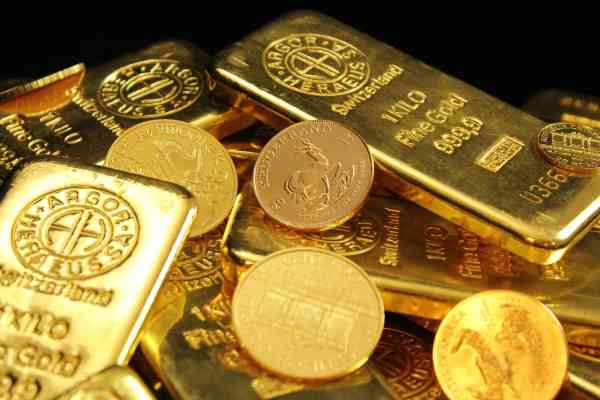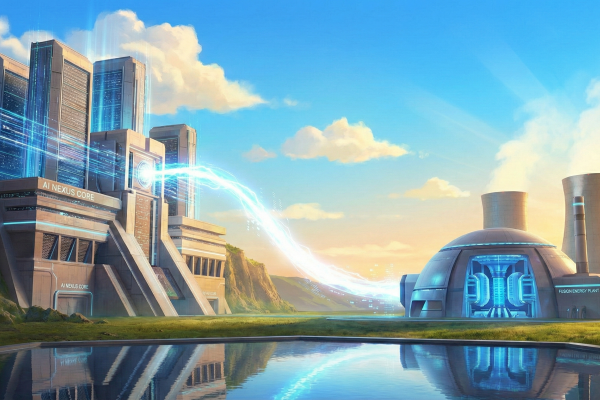August 22nd, 2022 | 12:23 CEST
NIO, Almonty Industries, Xiaomi - China's advantage
Tensions between the United States of America and China are increasing due to the unnecessary provocation with Nancy Pelosi's visit to Taiwan. In the event of an escalation of the conflict, the Western economy would be hit by economic consequences not yet imagined. The Middle Kingdom has a virtual monopoly on several raw materials that are vital not only for the production of renewable energies. For years, the US, in particular, has been trying to reduce this dependence, but with little success so far. The few Western producers of rare raw materials thus face a golden future.
time to read: 4 minutes
|
Author:
Stefan Feulner
ISIN:
NIO INC.A S.ADR DL-_00025 | US62914V1061 , ALMONTY INDUSTRIES INC. | CA0203981034 , XIAOMI CORP. CL.B | KYG9830T1067
Table of contents:

"[...] China's dominance is one of the reasons why we are so heavily involved in the tungsten market. Here, around 85% of production is in Chinese hands. [...]" Dr. Thomas Gutschlag, CEO, Deutsche Rohstoff AG
Author
Stefan Feulner
The native Franconian has more than 20 years of stock exchange experience and a broadly diversified network.
He is passionate about analyzing a wide variety of business models and investigating new trends.
Tag cloud
Shares cloud
Extreme dependence on the Middle Kingdom
What began with the Corona pandemic has now been further exacerbated by the sanctions imposed on Russia. Every bona fide end consumer should be aware of the consequences by now at the latest, with an empty wallet even before receiving the next paycheck. Shortages everywhere, empty shelves in supermarkets and DIY stores, and sharp increases in the prices of what felt like all everyday goods have become the norm in recent months. But whether an end to the upward price spiral is within reach is rather unlikely from today's geopolitical perspective, as the next conflict in Taiwan is already looming, which could raise relations between China and the Western world to a new level of escalation both politically and economically.
If Berlin and Washington have not yet realized this, their dependence on the Middle Kingdom is overwhelming. A course of action like that against the Russian aggressor would be almost impossible here and would have fatal consequences for the economy, industry and society alike. In terms of trade in goods, the People's Republic of China has become Germany's most important trading partner in recent years. Regarding Germany's imports of goods, China ranked first with EUR 142 billion in 2021, followed by the Netherlands with EUR 105 billion and the United States with only EUR 72 billion. Strategic dependencies of Germany and the West exist primarily in critical raw materials. For example, Asia's largest economy controls the entire value chain in rare earth metals, which are needed for smartphones, computer hard drives, MRI devices, catalysts, alloys, permanent magnets and batteries. In renewable energy, rare earth metals are essential for building electric cars and wind turbines.
Almonty Industries - Ahead of the big game
The situation is similarly bleak for the critical metal tungsten, for which China accounts for around 85% of global production. Tungsten is essential to today's high-tech industry. In addition to energy and lighting technology, the rare metal is used in aerospace, defense, telecommunications and medical technology. Already, supply is struggling to keep up with rising demand. In the next few years, experts expect a bottleneck due to the acceleration of the transformation to renewable energies.
Almonty Industries is likely to be one of the main beneficiaries here, as tungsten projects in the Western world are currently few and far between. Based in Toronto, Canada, Almonty's main business is mining, processing and shipping tungsten concentrate from its Los Santos mine in western Spain and its Panasqueira mine in Portugal, as well as developing its Sangdong tungsten mine in South Korea. When fully commissioned, the Sangdong mine at the Almonty Korea Tungsten deposit is shown to be responsible for 50% of the world's tungsten supply outside China in the future. The Korean operating environment is highly competitive, with relatively low material and labor costs, low taxes, and royalty-free, meaning that projected capital costs would be significantly lower than most comparable Western projects. The monster project is already fully funded through the last condition precedent, a capital increase. KfW-IPEX Bank, responsible for the debt portion, already disbursed the first tranche of USD 12.80 million out of the total facility of USD 75.1 million. In addition, the construction of the world's largest tungsten mine is already well advanced.
The Almonty Korea Moly project, which is located on the property of the Sangdong mine, could also be a further success, which could push up the valuation of the share significantly. The Deep Moly deposit has a similar origin but is entirely separate from the Sangdong tungsten mine, both physically and geologically. A significant maiden molybdenum resource has been defined here. Initial independent estimates of molybdenum mineral resources (Inferred category) returned approximately 0.26% molybdenum sulphide on 21.48Mt of rock at a cut-off value of 0.19%.
Almonty Industries currently has a market capitalization of CAD 191.02 million. Due to the increasing demand for tungsten and molybdenum, the Canadians should profit disproportionately from the world's largest tungsten mine.
Xiaomi, NIO - Covid and the move to Europe
Producers in China are also suffering from rising production and energy costs. The main problem in the Middle Kingdom, at least in the past quarter, was the strict COVID restrictions due to the increase in Corona infection figures. Smartphone manufacturer Xiaomi felt the brunt of this. As a result, sales for the months of April to June fell by 20% compared to the same quarter last year of EUR 10.25 billion. Smartphone sales alone, which account for around 50% of revenues, suffered a 29% slump. Net profit fell by 67% to EUR 0.3 billion and thus missed analysts' estimates.
President Wang Xiang explained in an analyst conference that the negative development was primarily due to the resurgence of the pandemic on the Chinese market and the associated weak demand. He added that overseas sales were also depressed due to rising energy costs and inflation.
At the electric car manufacturer NIO, on the other hand, the signs are pointing to expansion. The German launch is already planned for this year. The first export model will be the ET7 sedan. In addition to Germany, the carmaker is also planning to go to Sweden, Denmark and the Netherlands. What is unique about NIO is that the automaker has the batteries of its cars swapped at battery swap stations. That means customers do not have to wait for charging. A factory for these exchange stations is to be built in Hungary. NIO plans to operate 4,000 exchange stations worldwide by 2025.
China dominates many parts of the raw materials market. In addition to rare earth metals, the critical metal tungsten is also becoming scarce. With the construction of the world's largest tungsten mine, Almonty Industries should benefit disproportionately. Xiaomi's figures have slumped as a result of the COVID measures. In contrast, NIO plans to grow in Europe this year.
Conflict of interest
Pursuant to §85 of the German Securities Trading Act (WpHG), we point out that Apaton Finance GmbH as well as partners, authors or employees of Apaton Finance GmbH (hereinafter referred to as "Relevant Persons") may hold shares or other financial instruments of the aforementioned companies in the future or may bet on rising or falling prices and thus a conflict of interest may arise in the future. The Relevant Persons reserve the right to buy or sell shares or other financial instruments of the Company at any time (hereinafter each a "Transaction"). Transactions may, under certain circumstances, influence the respective price of the shares or other financial instruments of the Company.
In addition, Apaton Finance GmbH is active in the context of the preparation and publication of the reporting in paid contractual relationships.
For this reason, there is a concrete conflict of interest.
The above information on existing conflicts of interest applies to all types and forms of publication used by Apaton Finance GmbH for publications on companies.
Risk notice
Apaton Finance GmbH offers editors, agencies and companies the opportunity to publish commentaries, interviews, summaries, news and the like on news.financial. These contents are exclusively for the information of the readers and do not represent any call to action or recommendations, neither explicitly nor implicitly they are to be understood as an assurance of possible price developments. The contents do not replace individual expert investment advice and do not constitute an offer to sell the discussed share(s) or other financial instruments, nor an invitation to buy or sell such.
The content is expressly not a financial analysis, but a journalistic or advertising text. Readers or users who make investment decisions or carry out transactions on the basis of the information provided here do so entirely at their own risk. No contractual relationship is established between Apaton Finance GmbH and its readers or the users of its offers, as our information only refers to the company and not to the investment decision of the reader or user.
The acquisition of financial instruments involves high risks, which can lead to the total loss of the invested capital. The information published by Apaton Finance GmbH and its authors is based on careful research. Nevertheless, no liability is assumed for financial losses or a content-related guarantee for the topicality, correctness, appropriateness and completeness of the content provided here. Please also note our Terms of use.




